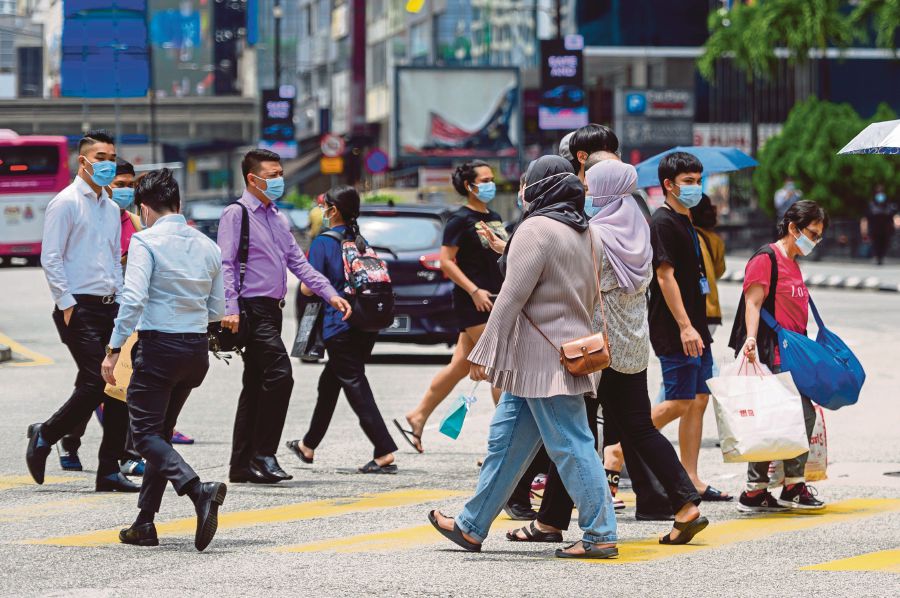Expert urges bosses to consider flexible work arrangement

January 22, 2021 @ 9:30am
KUALA LUMPUR: Flexible work arrangement should be treated as a proper option during the new norm and as part of efforts to prepare youths during these uncertain times as the world continues to battle the Covid-19 pandemic.
GoGet co-founder Francesca Chia said this would ensure that the workforce, in particular the future generation, could overcome the challenges posed by the pandemic.
She said businesses were left with no choice but to adapt to the new situation, which impacted employment, while youths had to conform to the new methods of schooling and learning.
"The government has created ways to protect the flexible work arrangement option on platforms like GoGet, with equal benefits as the full-time employment. For example, the PenjanaGig programme economic recovery plan, which allows GoGetters (part-time workers) to enjoy the Social Security Organisation coverage.

Francesca Chia.
"An open mindset, willingness to learn new skills and adapt are what will help us overcome these challenging times." She said the authorities and education institutions should look at supporting partnerships that could help youths learn and upskill through job-seeking platforms because these provided modules that could train them for future employment.
These platforms, she said, would teach them coding, digital marketing, as well as empower them to earn a living.
Chia said digitalisation had created opportunities and jobs in new fields for youths.
MauKerja chief executive officer Ray Teng said recruiters now required job seekers to have two skillsets involving traditional face-to-face interactions and online skills.
He said this shift meant that job seekers must also operate on social media platforms and conduct online meetings and events.
"Whoever possesses these skills will be in high demand, as we foresee companies operating in 'hybrid mode' in the future even after the pandemic ends."

Ray Teng.
He said these changes in the job market had seen fresh graduates and youths becoming more innovative in seeking employment.
"Those who were not lucky to find jobs resorted to venturing into business, especially the food and beverage sector, doing sales online and taking up gig jobs like becoming e-hailing drivers.
"However, there are those who are not so lucky and have been unemployed despite having graduated for some time. This group must not remain stuck and should find ways to learn new skills, or it would be bad for their career prospect and mental health," he said.
A study by the Asian Development Bank, in collaboration with the International Labour Organisation, had found that the employment prospects of the region's 660 million youths had been severely affected.
"They will be affected harder than adults and risk bearing higher- and longer-term economic and social costs.
"The report urges governments to engage with young people in policy and social dialogue, and adopt urgent, large-scale, and targeted interventions," said the report published in August last year.
These efforts, it said, needed to focus on labour market policies, such as youth-targeted wage subsidies and public employment programmes, as well as measures to mitigate disruptions to education and training.
Meanwhile, the International Monetary Fund in a working paper entitled "Pandemics and Automation: Will the Lost Jobs Come Back?" by economists Tahsin Saadi Sedik and Jiae Yoo published on Jan 15, suggested that policies in easing the adverse impacts on employment inequality should also include "revamping education to meet the demand for more flexible skillsets and lifelong learning, as well as new training, especially for the most adversely affected workers and reducing skill mismatches between workers and jobs".
It, however, said these measures might fall short if the training involved acquiring a different and challenging skillset, which will increase the possibility of a persistent rise in dropouts.
It was, therefore, important to address medium-term social challenges through income redistribution and safety nets, it said.
It suggested measures to address automation and inequality, which include raising unemployment insurance benefits, introducing a universal basic income, increasing transfers to labour force non-participants and making a more progressive tax system.
